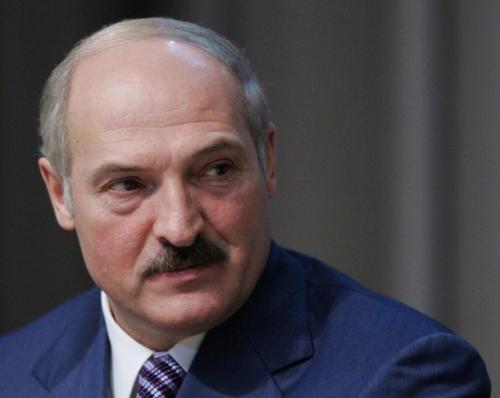
Belarus: A Replay of the Old Plot
Publication: Eurasia Daily Monitor Volume: 10 Issue: 122
By:

In his play “Tuteishiya” (Locals), Janka Kupala (1882–1942), Belarus’s most famous poet and playwright, depicts two characters that are mirror reflections of each other. Whereas the Western Scientist speaks Polish and claims that “so-called Belarus” is in fact Poland, the Eastern Scientist speaks Russian and claims that Belarus is part of Russia. The play itself is a satirical attack on indistinctive identity of the Tuteishiya i.e., Belarusians, one of whom, Mikita Znosak, the play’s protagonist, mimics the identity of whoever rules his land at a certain point in time—be that Russians, Poles or Germans.
Officially, Russia and Poland no longer claim any part of Belarus. But the old demands are well remembered and sometimes are replayed in a semi-farcical manner. Thus, in June, Mieczyslaw Jaskiewicz who chairs one of the two Unions of Poles in Belarus not recognized by Minsk (the eponymous organization presided by Mieczyslaw Lysy, on the other hand, is recognized) and the 82-year old retiree Weronika Sebastianowicz were obliged by a court order to pay fines of 4 million and 2.5 million Belarusian rubles ($456 and $285), respectively. The penalty was for conducting an unsanctioned mass gathering and for installing a memorial cross on the 64th anniversary of the death of Anatol Radziwonik, one of the commanders of the Polish Armia Krajowa (Home Army), in a rural village not far from Grodno (https://arche.by/by/page/ideas/15477).
Initially, independent Belarusian media treated the entire criminal proceeding and the fines imposed by the Belarusian court as simply one more misdemeanor by the “Lukashenka regime,” particularly considering that the cross was hoisted on private land (https://www.belaruspartisan.org/politic/235279/). It turned out, however, that Sebastianowicz, herself a veteran of the AK, made a televised public statement to the effect that “Belarus, Lithuania, and Lviv are Polish lands under occupation” (https://arche.by/by/page/ideas/15477). This statement offended some Belarusians on both sides of the political divide, that is, not only pro-government Belarusians but those from the opposition, too. Anatol Sidarevich, a seasoned opposition-minded author, criticized Sebastianowicz in the major Belarusian-language newspaper Nasha Niva (https://polacygrodzienszczyzny.blogspot.com/2013/06/sidarewicz-atakuje-polakow.html) on the grounds that the AK was an anti-Belarusian force aiming at the restoration of Polish domination over western Belarus. Also, a lengthy if more conciliatory debate showed up in Arche, a major Belarusian-language magazine, whose print version was recently renewed following a nine-month-long hiatus. During this debate, even Andrzej Poczobut, correspondent of the Polish daily Gazeta Wyborcza, against whom criminal proceedings (for his alleged insulting of the president of Belarus) were recently dropped, had to acknowledge that Sebastianowicz’s words were poorly crafted. Nonetheless, three out of four participants of the debate agreed with the qualification of the AK as an anti-Belarusian force.
Whereas Poczobut, not to mention Sebastianowicz, effectively replayed Janka Kupala’s Western Scientist, the Eastern Scientist was seemingly impersonated by President Alyaksandr Lukashenka himself—especially considering the fact that in today’s Belarus, Russia is more highly promoted than Poland or the West at large. Speaking at the World Congress of Russian Press held in Minsk, Lukashenka said that he had defended the position of the Russian language in Belarus in his struggle with nationalists (https://naviny.by/rubrics/politic/2013/06/20/ic_articles_112_182111/). When the head of state of a relatively new country speaks disapprovingly about “nationalists” in general, this may come across to many as an aberration unless one factors in the availability of at least two blueprints of “Belarusianness.” Those dedicated to the Westernizing blueprint are often labeled the only nationalists, which is a mistake. No wonder that Andrei Dynko, one of Belarus’s most well-known Westernizing nationalists, said that Lukashenka exchanges his language policy for Russia’s economic preferences. In the same vein, Alexander Klaskovsky’s article in Belorusskie Novosti, an online opposition media outlet, is titled “Lukashenka sells Russianness to Moscow” (https://naviny.by/rubrics/politic/2013/06/20/ic_articles_112_182111/).
As a sign of Russia’s growing influence, it was confirmed by General Victor Bondarev, commander of Russia’s Air Force that the new Russian airbase on Belarusian soil, initially rumored to be created in Baranovichi, will in fact be located in the city of Lida (https://news.tut.by/politics/354841.html). Situated 30 kilometers from the Lithuanian border, Lida happens to be one of the most vibrant centers of the Polish minority in Belarus.
Belarus’s ties to Europe, on the other hand, have been less assured. Just across that border, in Vilnius, of which Lida used to be a distant suburb before the war, a group of Lithuanian parliamentarians did not receive the permission of the full Seim (parliament) to go to Belarus and meet with local authorities in Novogrudek, Mir and Nieswizh (https://ru.delfi.lt/news/politics/gruppe-litovskih-deputatov-ne-razreshili-otpravitsya-v-belarus.d?id=61716373). At about the same time (end of June), the Council of Europe signaled its concern over the continued practice of capital punishment in Belarus. Primarily for this reason, Belarus is the only European country not part of that institution (https://naviny.by/rubrics/politic/2013/06/25/ic_articles_112_182151/).
On a more positive note, the long pre-announced suspension of Vladimir Makei from the European Union’s visa ban list was finally endorsed at the June 24 meeting of foreign ministers of the EU countries in Luxembourg (https://news.tut.by/politics/354469.html). Also, Yury Ambrazevich, a department chair in Belarus’s Ministry of Foreign Affairs, paid a visit to the State Department in Washington, DC (https://naviny.by/rubrics/politic/2013/06/24/ic_news_112_419614/)—the second recent face-to-face contact between the major foreign policy entities of these two countries, whose mutual diplomatic relations are limited to the Charge d’Affaires level.
Belarus has long accused the West of a double standard. On June 12, this accusation was seconded by an unexpected source. Specifically, Neil Clark of The Guardian said on Russia Today (RT—Russian Television’s English-language channel) that if the Belarusian police force acted the same way the Turkish police did on Taksim Square, “British Foreign Secretary William Hague would have reported it to the UN Security Council and cause more sanctions on Belarus… The double standards are glaring. If you’re in NATO you can actually get away with murder, and [Prime Minister Recep Tayyip] Erdogan has been emboldened by that” (www.voltairenet.org/article178869.html).
Whether or not Neil Clark is on target, a replay of Janka Kupala’s tragicomedy is in full swing. Only, there is no longer parity between the two “Scientists.” The Eastern Scientist is gaining the upper hand, and the Western one has lost vigor but keeps up appearances.




